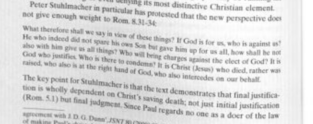tices, power, bodies, and material culture displaces attention to subjective, phenomenological consciousness. David Chidester coins the label “new materialism” to describe this program in a discussion of the influential text, Critical Terms for Religious Studies. 2 In the same vein as Talal Asad’s criticism of Clifford Geertz for thinking of religion in men- talistic terms (as a matter of belief), the contributors to Critical Terms take aim at everything mental and/or subjective, including experience, but also such things as consciousness and ideas. 3


